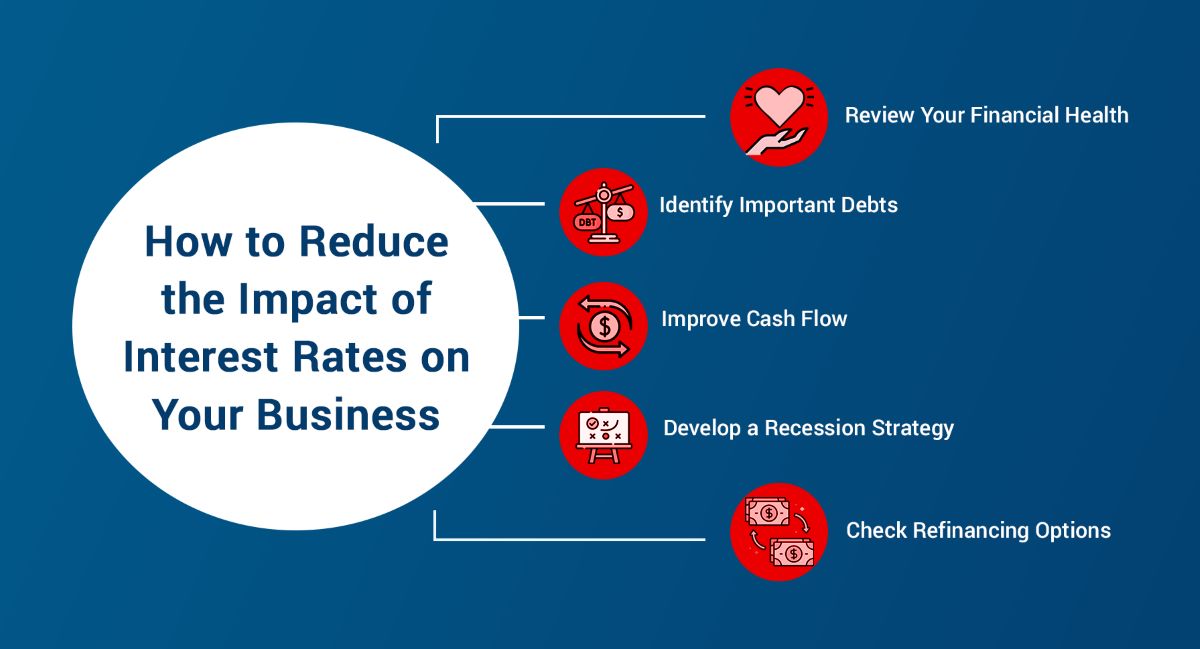

Finance
Do Reits Do Well When Interest Rates Rise?
Published: November 2, 2023
Explore the impact of rising interest rates on finance and discover if investing in REITs can still yield favorable returns
(Many of the links in this article redirect to a specific reviewed product. Your purchase of these products through affiliate links helps to generate commission for LiveWell, at no extra cost. Learn more)
Table of Contents
- Introduction
- What are REITs?
- Relationship between Interest Rates and REITs
- Historical Performance of REITs during Interest Rate Rises
- Factors influencing REIT Performance during Interest Rate Rises
- Benefits of REITs during Interest Rate Rises
- Potential Risks and Challenges for REITs during Interest Rate Rises
- Conclusion
Introduction
Real Estate Investment Trusts (REITs) have long been popular investment options for individuals looking to diversify their portfolios and gain exposure to the real estate market. However, when interest rates start to rise, investors may question whether REITs can still deliver strong performance.
In this article, we will examine the relationship between interest rates and REITs, explore the historical performance of REITs during interest rate rises, discuss the factors that influence REIT performance in this scenario, and highlight the benefits and potential risks for investors.
REITs are unique investment vehicles that own, operate, or finance income-generating properties, such as residential and commercial buildings, hotels, healthcare facilities, and retail spaces. As REITs are structured as companies that own and manage these properties, they are required to distribute a significant portion of their taxable income to shareholders, making them attractive investments for income-seeking investors.
When interest rates rise, the cost of borrowing for both individuals and companies increases. This can affect various sectors of the economy, including the real estate market, as higher borrowing costs may deter potential buyers and lead to a decline in property demand and values. In turn, this can impact the performance of REITs, which rely heavily on rental income and property appreciation.
However, the relationship between interest rates and REITs is complex and influenced by various factors. While rising interest rates can pose challenges for some aspects of the real estate market, there are also potential benefits that can positively impact REIT performance.
In the following sections, we will delve deeper into the impact of interest rate rises on REITs, examining historical performance trends, key influencing factors, and any potential risks and challenges that investors should be aware of.
What are REITs?
Real Estate Investment Trusts (REITs) are investment vehicles that pool funds from multiple investors to invest in real estate assets. These assets can include various types of properties, such as residential, commercial, industrial, and retail spaces. REITs provide individuals with the opportunity to invest in real estate without the need for direct ownership or management of properties.
REITs are structured as companies and are required by law to distribute a large portion of their taxable income as dividends to shareholders. This makes them attractive investments for income-focused investors, as they can provide a steady stream of income. In fact, one of the key benefits of REITs is their ability to generate stable cash flow from rental income.
There are several types of REITs, each with its own focus and specialization. Equity REITs are the most common type and invest in and own properties, generating income from rental payments. Mortgage REITs, on the other hand, provide financing for real estate by investing in mortgages and mortgage-backed securities. Hybrid REITs combine elements of both equity and mortgage REITs.
In order to qualify as a REIT, certain criteria must be met. For example, at least 75% of a REIT’s assets must be invested in real estate, and at least 90% of its taxable income must be distributed to shareholders. By meeting these requirements, REITs are able to enjoy certain tax advantages, such as the ability to avoid double taxation at the corporate level.
REITs are traded on major stock exchanges, allowing investors to easily buy and sell shares. This provides liquidity and flexibility, as investors can quickly enter or exit positions. Additionally, REITs offer the benefit of diversification by investing in a wide range of properties and markets.
In summary, REITs are investment vehicles that allow individuals to invest in real estate without the need for direct property ownership. They offer the potential for regular income through rental payments and provide diversification by investing in a broad range of properties. REITs are regulated and have specific criteria to qualify for tax advantages, making them appealing to income-seeking investors.
Relationship between Interest Rates and REITs
The relationship between interest rates and Real Estate Investment Trusts (REITs) is complex and can have both positive and negative impacts on the performance of these investment vehicles. Interest rates refer to the cost of borrowing money, and changes in interest rates can affect various aspects of the real estate market, which in turn can influence the performance of REITs.
When interest rates rise, borrowing costs increase for both individuals and businesses. This can have a direct impact on the real estate market as higher borrowing costs may discourage potential buyers from purchasing properties, leading to decreased demand. Additionally, rising interest rates can also affect the value of existing properties, potentially leading to decreased property prices. This can have a negative impact on the performance of REITs, as they rely on rental income and property appreciation.
However, it is important to note that the relationship between interest rates and REITs is not always straightforward. In fact, there are instances where REITs have performed well even during periods of rising interest rates.
One reason for this is that REITs often have long-term leases in place with tenants, which can provide a level of stability and insulation from short-term interest rate fluctuations. These leases typically have fixed rental rates, meaning that even if interest rates rise, the rental income generated by the properties owned by REITs remains steady.
Furthermore, rising interest rates are often indicative of a strong economy, which can lead to increased demand for real estate assets. This increased demand can offset the negative impact of higher borrowing costs and contribute to the overall performance of REITs.
It is also worth noting that different types of REITs may be affected differently by interest rate changes. For example, Equity REITs, which primarily generate income from rental payments, may be more directly impacted by changes in interest rates compared to Mortgage REITs, which focus on mortgage lending and are influenced by factors such as mortgage rates and refinancing activity.
In summary, the relationship between interest rates and REITs is complex and multifaceted. While rising interest rates can pose challenges for the real estate market and potentially impact the performance of REITs, there are also factors that can mitigate these effects. The long-term leases in place with tenants and the potential for increased demand in a strong economy are examples of factors that can help support the performance of REITs during periods of rising interest rates.
Historical Performance of REITs during Interest Rate Rises
The historical performance of Real Estate Investment Trusts (REITs) during periods of rising interest rates can provide insights into how these investment vehicles have fared in the past. While every market cycle is unique, examining historical data can help investors understand potential trends and outcomes.
Historically, the performance of REITs during interest rate rises has been mixed. In some cases, rising interest rates have correlated with periods of strong performance for REITs, while in other instances, REITs have experienced more challenging conditions.
One important factor to consider is the overall health of the real estate market and the broader economy during periods of interest rate rises. In periods of economic strength, with robust demand for real estate properties, REITs have often performed well, even in the face of rising interest rates.
For example, during the period from 2015 to 2018, the Federal Reserve increased interest rates multiple times. However, this period also coincided with a strong economy and a healthy real estate market, which helped drive positive performance for REITs. The robust economic conditions contributed to increased demand for properties and rental income, offsetting the impact of higher borrowing costs.
On the other hand, there have been instances where rising interest rates have posed challenges for REITs. During the global financial crisis in 2008, interest rates were lowered to stimulate economic growth. As the economy recovered and interest rates began to rise again, some REITs faced difficulties due to the lingering effects of the recession and a slower real estate market recovery.
It is worth noting that different sectors within REITs may respond differently to interest rate changes. Sectors such as residential and healthcare REITs, which provide essential services, have often demonstrated more resilience during periods of rising interest rates compared to sectors such as retail and office REITs, which may be more sensitive to changes in consumer spending and business activity.
Overall, while the historical performance of REITs during interest rate rises has been varied, it is essential to consider the broader economic and market conditions when evaluating their performance. Factors such as the strength of the real estate market, the overall health of the economy, and the specific sectors within REITs can all influence how these investment vehicles perform during periods of rising interest rates.
Factors influencing REIT Performance during Interest Rate Rises
The performance of Real Estate Investment Trusts (REITs) during periods of rising interest rates is influenced by various factors that can impact their financial performance and investor sentiment. Understanding these factors can provide insights into how REITs might fare in a rising interest rate environment.
One of the key factors influencing REIT performance during interest rate rises is the state of the broader real estate market. When interest rates increase, the cost of borrowing for potential property buyers also rises, which can lead to decreased demand for real estate. If the real estate market experiences a slowdown or a decline in property values, this can have a negative impact on the rental income and property appreciation that drive REIT performance.
Another factor to consider is the maturity and stability of the leases held by the REITs. REITs with a significant portion of long-term leases in place may be better positioned to weather interest rate rises. These long-term leases often have fixed rental rates, shielding the REIT from the immediate impact of rising interest rates. However, if a large number of leases come up for renewal during a rising interest rate period, the REIT may face challenges in renegotiating favorable terms.
The availability and cost of financing can also impact REIT performance during interest rate rises. If interest rates rise significantly, borrowing costs for REITs can increase, potentially affecting their ability to fund property acquisitions or refinancing. REITs with higher levels of debt may be more vulnerable to rising interest rates, as they may experience increased interest expense, which could weigh on their earnings and cash flow.
Market sentiment and investor expectations play a crucial role in REIT performance during interest rate rises. Changes in interest rates can influence investor perceptions of the real estate market and its future prospects. If investors anticipate negative effects on property values and rental income due to rising interest rates, they may move away from REIT investments, leading to downward pressure on stock prices. Conversely, if investors have confidence in the resilience of the real estate sector and the potential for REITs to continue generating income and value, they may remain invested or even increase their holdings.
The specific sector focus of the REIT can also impact its performance during interest rate rises. Different sectors within the real estate market may respond differently to changing interest rates. For example, sectors such as residential and healthcare REITs, which cater to essential needs, may be less affected than sectors like retail and office REITs, which are more sensitive to consumer spending patterns and business activity.
It is important to note that while these factors can influence REIT performance during periods of rising interest rates, each market cycle is unique, and the interplay of these factors can vary. It is crucial for investors to carefully analyze these factors and consider the specific circumstances and characteristics of individual REITs when evaluating their potential performance during interest rate rises.
Benefits of REITs during Interest Rate Rises
While rising interest rates can pose challenges for various sectors of the economy, including real estate, Real Estate Investment Trusts (REITs) can offer certain benefits during these periods. Understanding these benefits can help investors evaluate the attractiveness of REITs in a rising interest rate environment.
One of the key benefits of REITs during interest rate rises is their potential to provide consistent income. REITs are required by law to distribute a significant portion of their taxable income to shareholders in the form of dividends. This steady stream of income can be particularly appealing for income-oriented investors, especially when other income-generating investments may be affected by rising interest rates.
Furthermore, REITs often have long-term leases in place with tenants. These leases typically have fixed rental rates, which means that even if interest rates rise, the rental income generated by the properties owned by REITs remains stable. This stability can provide a level of insulation against short-term interest rate fluctuations and help support the income potential of REITs during periods of rising interest rates.
In addition to income potential, REITs can also offer investors diversification. By investing in a REIT, individuals gain exposure to a portfolio of real estate assets across different sectors and geographic locations. This diversification can provide protection against concentration risk and potential volatility in specific property markets, allowing investors to benefit from the performance of different types of real estate assets.
Moreover, certain sectors within the real estate market may exhibit resilience during interest rate rises, and REITs focused on these sectors can capitalize on this strength. For example, sectors such as healthcare or residential properties, which provide essential services, may continue to experience demand even when interest rates increase. By investing in REITs specializing in these sectors, investors can potentially benefit from the stability and growth opportunities they offer.
REITs also offer liquidity and accessibility to investors. Unlike direct real estate investments, REITs are traded on major stock exchanges, allowing individuals to buy and sell shares with relative ease. This liquidity provides flexibility and the ability to quickly adjust investment positions, if desired, in response to changing market conditions or investor preferences.
It is important to remember that the performance of REITs during interest rate rises can be influenced by various factors, including the overall health of the real estate market and the specific circumstances of individual REITs. Therefore, investors should conduct thorough research and due diligence to identify REITs with strong fundamentals, attractive income potential, and sound management strategies.
In summary, REITs can offer several benefits during periods of rising interest rates. These benefits include consistent income through dividend distributions, stable rental income from long-term leases, diversification across real estate sectors and locations, potential resilience in certain sectors, and liquidity for investors. Assessing these benefits alongside other market factors can help investors make informed decisions about including REITs in their investment portfolios.
Potential Risks and Challenges for REITs during Interest Rate Rises
While Real Estate Investment Trusts (REITs) offer benefits during periods of rising interest rates, there are also potential risks and challenges that investors should be aware of. Understanding these risks can help investors make informed decisions and manage their portfolios effectively in a rising interest rate environment.
One of the primary risks for REITs during interest rate rises is the impact on borrowing costs. REITs often rely on debt financing to acquire and develop properties. When interest rates rise, borrowing costs increase, potentially affecting REITs’ profitability and cash flow. Higher interest expenses can reduce net operating income and potentially limit the funds available for dividends and property improvements.
Another challenge for REITs during interest rate rises is the potential for property devaluation. Rising interest rates can lead to decreased demand for real estate properties, which can result in a decline in property values. If REITs own properties that experience a decrease in market value, it may have a negative impact on their net asset value and overall performance.
Additionally, rising interest rates can affect investors’ appetite for dividend-paying stocks, including REITs. As interest rates rise, fixed-income investments become more attractive relative to dividend yields. This shift in investor sentiment can result in downward pressure on REIT stock prices and potentially lead to a decrease in demand for these investments.
Moreover, the nature of the real estate market itself can present challenges for REITs during periods of rising interest rates. Real estate is a cyclical industry, and changes in interest rates can impact property demand and rental rates. REITs heavily rely on rental income, and any decrease in rental rates due to higher borrowing costs or decreased property demand can affect their financial performance.
Furthermore, not all sectors within the real estate market respond the same way to rising interest rates. Some sectors, such as retail or office spaces, may be more sensitive to changes in consumer spending or business activity, which can be influenced by higher interest rates. This sector-specific risk can manifest in lower occupancy rates, higher tenant turnover, or decreased rental rates for specific types of properties.
It is essential for investors to consider these risks and challenges when evaluating their investment choices. Conducting thorough research on the specific REITs and their underlying properties, as well as assessing their debt levels, interest rate sensitivity, and industry exposure, can help investors gauge their vulnerability to rising interest rates.
Despite these potential risks, many REITs have proven their ability to navigate and overcome challenges in the past. History has shown that well-managed REITs with a diversified portfolio and strong fundamentals can adapt to changing market conditions and continue to provide consistent income and potential long-term growth to investors.
In summary, potential risks and challenges for REITs during periods of rising interest rates include increased borrowing costs, potential property devaluation, decreased investor demand, cyclical nature of the real estate market, and sector-specific risks. Conducting thorough research and understanding the specific characteristics of individual REITs can help investors manage these risks and make informed investment decisions.
Conclusion
In conclusion, Real Estate Investment Trusts (REITs) can be attractive investment options even during periods of rising interest rates, although they do face certain challenges. Understanding the relationship between interest rates and REITs is crucial for investors looking to navigate the real estate market effectively.
While rising interest rates can impact the real estate market and potentially hinder the performance of REITs, historical data reveals mixed results. Factors such as the overall health of the economy, the maturity of leases, sector focus, and investor sentiment all influence how REITs perform during interest rate rises.
Investors stand to benefit from investing in REITs during interest rate rises due to their potential to generate consistent income and provide diversification. REITs’ ability to maintain stable rental income through long-term leases and their liquidity as publicly traded securities are additional advantages for investors.
However, it is crucial to be aware of the potential risks and challenges that come with investing in REITs during rising interest rates. Increased borrowing costs, potential property devaluation, and changes in investor sentiment are among the factors that investors should consider. Thorough research, including assessing specific sectors and the financial health of individual REITs, can help mitigate these risks and make informed investment decisions.
In summary, while rising interest rates can pose certain risks and challenges, well-managed REITs with strong fundamentals and a diversified portfolio can demonstrate resilience and continue to provide income and growth potential to investors. As with any investment, it is essential for investors to conduct their own due diligence and consult with financial professionals to ensure REITs align with their investment objectives and risk tolerance.














